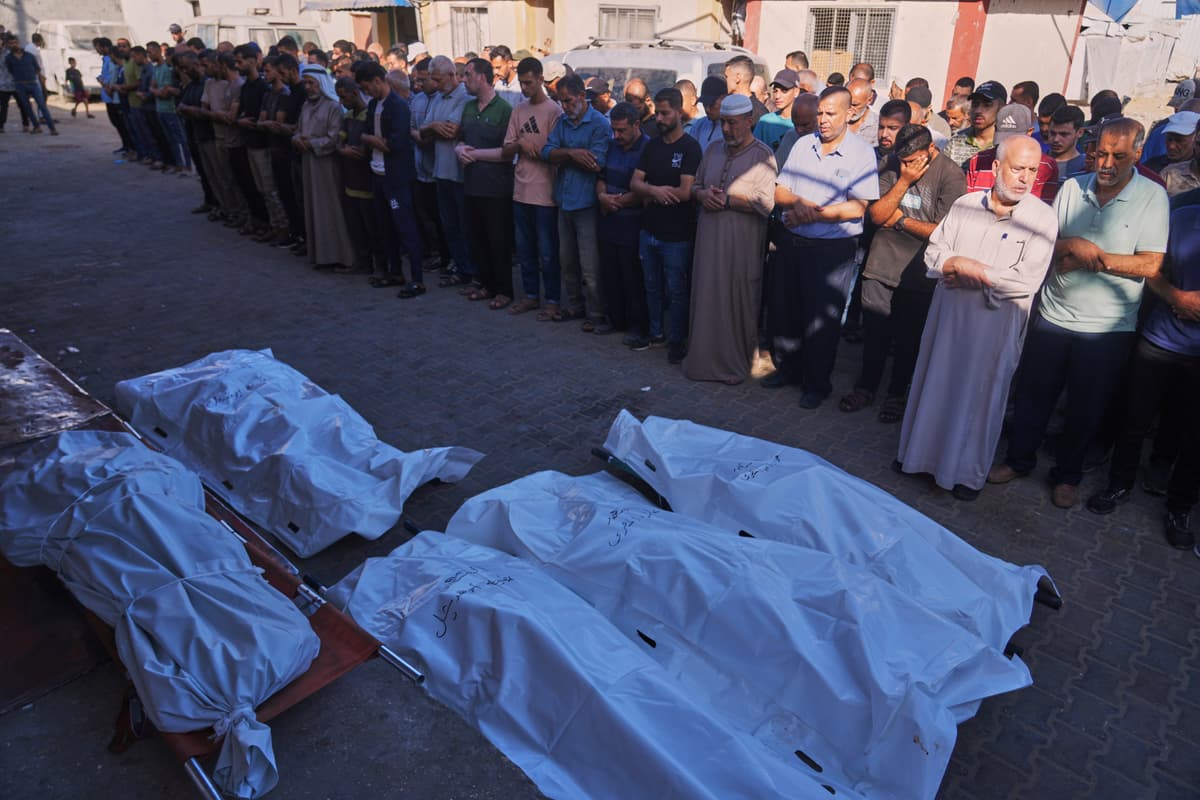World
Genocide Scholars Divided Over Controversial Israel Resolution

A significant rift has emerged within the International Association for Genocide Scholars (IAGS) following the passage of a resolution that accuses Israel of committing genocide in Gaza. Dr. Sara Brown, a member of the association for over a decade and an expert in comparative genocide studies, has publicly criticized the resolution as an “embarrassing absence of professionalism.” She argues that the resolution, which passed with only 129 votes from approximately 500 members, is based on flawed assessments and unverified claims.
Dr. Brown described the resolution as containing “many unsubstantiated claims” and being “poorly cited,” relying on biased sources that distort the realities of the ongoing Israel-Hamas conflict. She expressed concern that the leadership of the IAGS blocked attempts to discuss dissenting opinions during the drafting process. Internal communications revealed that the leadership had initially promised town hall discussions but later retracted that offer, limiting the opportunity for critical engagement among members.
The resolution asserts that Israel’s actions in Gaza, including the killing of children and the displacement of over two million Palestinians, meet the criteria for genocide as outlined in Article II of the UN Convention for the Prevention and Punishment of the Crime of Genocide. It references reports from Amnesty International and UN special investigator Francesca Albanese, both of which have faced criticism for alleged biases. Dr. Brown noted that Albanese has faced widespread accusations of antisemitism, including claims from Deborah Lipstadt, the former U.S. special envoy for antisemitism.
Dr. Brown emphasized that the resolution’s approach and the manner in which it was passed reflect a troubling trend within the association. She expressed concern that the inclusion of activists and artists in the organization has compromised its scholarly integrity, stating, “This opens the door for something like this to happen.” She criticized the lack of transparency and the perception that the vote represented a unanimous consensus among the membership, asserting that dissenting voices were intentionally silenced.
The resolution has been received differently across the political spectrum. While Hamas welcomed the findings, Israel’s Foreign Ministry condemned the resolution, calling it “an embarrassment to the legal profession and to any academic standard.” The ministry criticized the IAGS for allegedly failing to conduct basic research and for relying on what it termed “Hamas’s campaign of lies.”
In response to Dr. Brown’s criticisms, Emily Sample, the IAGS communications officer, defended the resolution’s authors, stating that they provided sufficient contextual information for members to make informed decisions. Sample described the low voting turnout as “pretty standard” for such resolutions.
As the debate continues, the implications of the resolution may shape perceptions of Israel’s actions in Gaza and the broader discourse on genocide and accountability. Dr. Brown concluded, “Acting in self-defense by engaging in a war against an existential threat is not the same as the intent to destroy, in whole or in part, the Palestinian people. Anyone who considers themselves a genocide scholar should feel embarrassed by this vote.”
-

 Lifestyle4 months ago
Lifestyle4 months agoLibraries Challenge Rising E-Book Costs Amid Growing Demand
-

 Sports3 months ago
Sports3 months agoTyreek Hill Responds to Tua Tagovailoa’s Comments on Team Dynamics
-

 Sports3 months ago
Sports3 months agoLiverpool Secures Agreement to Sign Young Striker Will Wright
-

 Lifestyle3 months ago
Lifestyle3 months agoSave Your Split Tomatoes: Expert Tips for Gardeners
-

 Lifestyle3 months ago
Lifestyle3 months agoPrincess Beatrice’s Daughter Athena Joins Siblings at London Parade
-

 World3 months ago
World3 months agoWinter Storms Lash New South Wales with Snow, Flood Risks
-

 Science4 months ago
Science4 months agoTrump Administration Moves to Repeal Key Climate Regulation
-

 Science3 months ago
Science3 months agoSan Francisco Hosts Unique Contest to Identify “Performative Males”
-

 Business4 months ago
Business4 months agoSoFi Technologies Shares Slip 2% Following Insider Stock Sale
-

 Science4 months ago
Science4 months agoNew Tool Reveals Link Between Horse Coat Condition and Parasites
-

 Sports4 months ago
Sports4 months agoElon Musk Sculpture Travels From Utah to Yosemite National Park
-

 Science4 months ago
Science4 months agoNew Study Confirms Humans Transported Stonehenge Bluestones









